8th NFC Award: Provinces demand more tax revenue from Centre
Federal govt wants to have greater burden sharing in exchange for more revenues

Federal govt wants to have greater burden sharing in exchange for more revenues.
Negotiations for the 8th National Finance Commission Award began on Tuesday on a dissenting note, with Islamabad and the four provinces unable to come to an agreement on whether to extend the current NFC Award for the coming year or to push for a final agreement within the next two months, when the current award is set to expire.
At the heart of the disagreement between the federal and provincial governments is whether the dramatic increase in funds made available to the provinces in the 7th NFC award was in anticipation of their increased legislative and executive responsibilities that were granted to them through the 18th Amendment to the Constitution. The previous NFC award was agreed to in December 2009, but the amendment did not pass Parliament until April 2010.
The provinces contend that the federal government owes them more money in the 8th NFC award because they were given more responsibilities after the last award.
Islamabad argues that the last award was increased in anticipation of the new autonomy granted to the provinces by the 18th Amendment and that if they want more money from the federal government, they will have to share additional responsibilities with the federal government, specifically in the areas of counter-terrorism, natural disaster management, and aid to special regions in the country.
Balochistan flatly opposed that proposal from Islamabad.
The inaugural session is the ninth meeting of the NFC, held to discuss the eighth award. One of the previously constituted NFCs, in fiscal 2001, was unable to come to an agreement and thus never issued an award.
The NFC consists of representatives of the four provinces and the federal government. It is tasked with coming up with a five-year agreement on how to distribute revenues from the federal divisible pool of taxes. The 9th NFC will decide on the formula to distribute revenues from fiscal year 2016 through the fiscal year ending June 30, 2020. It is chaired by Federal Finance Minister Ishaq Dar. Three provinces sent their finance ministers to attend the meeting. Balochistan was represented by its chief minister, Abdul Malik Baloch.
There was also discussion on whether or not the commission should try to finalise the award within the next two months, when the current award expires on June 30. Kaiser Bengali, technical advisor to the Balochistan delegation, felt that the negotiations would take more time. Federal Finance Secretary Waqar Masood said that the President has the constitutional power to extend the current award if there is no agreement in time for the fiscal 2016 budget. Islamabad is in favour of preparing the next budget by extending the current award. However, Sindh is staunchly opposed to extending the current award and wants negotiations finalised within the next few weeks.
Under the seventh Award, the federal government had agreed to increase the provinces share of federal tax revenues from 46.5% to 57.5%. In conjunction with economic growth and inflation, this increased the provinces share from Rs677 billion transferred in fiscal 2010 to Rs1.6 trillion for fiscal 2015.
There was also discussion of whether or not the formula for determining which province gets how much revenue should be changed. Under the current formula, 82% of the award is based on provincial population, 10.3% based on poverty and lack of infrastructure, 5% on revenue collection, and 2.7% on the basis of inverse population density.
As the least dense province in the country, Balochistan wants the share based on inverse population to increase. Bengali, however, said that the delay in conducting the supposedly decennial census should not delay the finalisation of the award. The last population census was conducted in 1998.
Khyber Pakhtunkhwa demanded that its share in the divisible pool to compensate for losses on account of the war against the Taliban should be enhanced from 1% of the total pool to 3%. KP Finance Minister Saeed Muzaffar said that his province was bearing a huge burden of Internally Displaced Persons and Afghan refugees and need additional resources to reconstruct infrastructure damaged by the war.
Muzaffar demanded that the KP should be given Rs119 billion on account of unspent water used by other provinces and over Rs500 billion outstanding net profit from state-owned hydroelectric power plants.
The Commission agreed to undertake detailed background work to bring all the parties on the same page. Dr Ayesha Ghaus Pasha, Punjab’s technical member, said that four studies would be undertaken: one on resource mobilisation at the federal and provincial levels, another on devolved versus integrated tax structure – evolution of tax collection framework in Pakistan, another on allocation efficiency and expenditures analysis at the federal and provincial level and one on rationalisation of subsidies and grants.
Somewhat unusually for the largest province, she said that Punjab was in favour of enhancing provinces shares in federal taxes. Lahore typically tends to side with the federal government on many issues.
The federal government also underlined the need to have an integrated sales tax collection as GST on services collection by the provinces was creating problems, said Masood.
Published in The Express Tribune, April 29th, 2015.

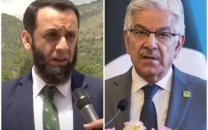
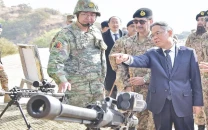
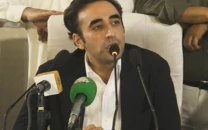
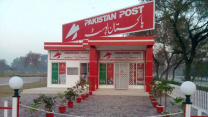
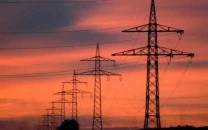
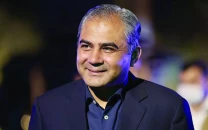












COMMENTS
Comments are moderated and generally will be posted if they are on-topic and not abusive.
For more information, please see our Comments FAQ